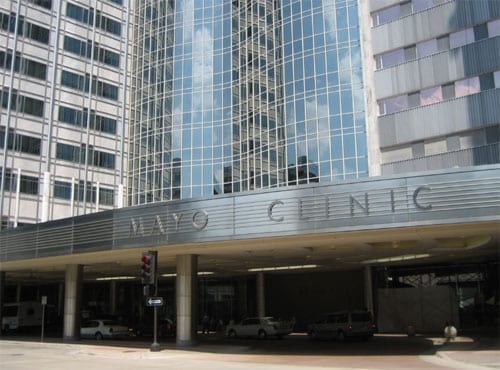 Mayo on Massage?
Mayo on Massage?
We’ve posted many articles chronicling the benefits of massage for a variety of syndromes, diseases, conditions and injuries. Often, we have cited studies published by the Mayo Clinic as sources for those articles. Today, let’s see what Mayo has to say about the big picture: massage and health.
A Wide Range
Massage is now recommended by doctors in broad array of circumstances. Generally, massage is considered a complementary or alternative modality offered side by side with standard medical treatment. Studies of the benefits of massage demonstrate that it is an effective treatment for reducing stress, pain and muscle tension, and is widely recommended for the following, many of which we have previously discussed:
- Anxiety
- Digestive disorders
- Fibromyalgia
- Headaches
- Insomnia related to stress
- Myofascial pain syndrome
- Soft tissue strains or injuries
- Sports injuries
- Temporomandibular joint pain
While more research is needed to confirm the benefits of massage in these instances, studies already support massage therapy, including that delivered by a premium massage chair, as effective treatment.
Dr. Feelgood
Whatever measurable benefits may be accrued from massage, and beyond the measurable benefits for specific conditions or diseases, many people enjoy massage because it often produces feelings of caring, comfort and connection. These “feel good” aspects of massage go deep; the feelings aren’t simply emotional or illusionary.
Studies suggest that massage stimulates beneficial endorphins while reducing levels of stress hormones like cortisol. And soothing relaxation itself may inspire more healthy habits, such as increased exercise: if our body feels healthy, we are more inclined to use it.
Mayo’s Conclusions
Studies of the benefits of massage demonstrate that it is an effective treatment for reducing many sorts of stress, pain and muscle tension. At the Mayo Clinic, massage therapy may be recommended to help people cope with the pain and stress of cancer, heart disease, stomach problems, fibromyalgia or other conditions.
The Mayo Clinic concludes: “Brush aside any thoughts that massage is only a feel-good way to indulge or pamper yourself. To the contrary, massage can be a powerful tool to help you take charge of your health and well-being, whether you have a specific health condition or are just looking for another stress reliever.”
And Beyond
Interesting, there may be additional benefits of massage treatment yet to be determined. Massage therapy’s well-established clinical benefits—its beneficial effects on anxiety, depression, and pain— may stem from other causal mechanisms, which are still to be identified.
Stay tuned. And be sure to make massage a part of your regular self-care.
“Never Had a Massage? What You Should Know.” Mayo Clinic, Mayo Foundation for Medical Education and Research, 7 Dec. 2015, www.mayoclinic.org/healthy-lifestyle/stress-management/in-depth/massage/art-20045743.
Moyer, Christopher A, et al. “Does Massage Therapy Reduce Cortisol? A Comprehensive Quantitative Review.” Science Direct, Elsevier, 2 July 2010, www.sciencedirect.com/science/article/pii/S1360859210000896.


